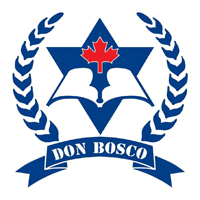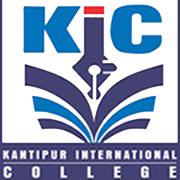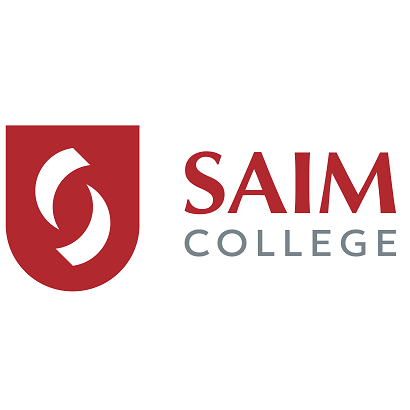Overview
MBA at Atlantic International College, Kathmandu (affiliated with Pokhara University)
Atlantic International College (AIC) in Kathmandu, Nepal, affiliated with Pokhara University, offers a comprehensive Master’s in Business Administration (MBA) program. This program is designed to foster corporate change in Nepal by transforming students into competent managers, executives, and entrepreneurs capable of becoming strategic change agents in both corporate and social settings.
Program Description
The MBA program at Pokhara University is a general management degree that links career collaboration and personal development with achieving career aspirations. For some students, it’s a progression in their existing career trajectory, while for others, it offers an opportunity to embark on a new career direction.
Program Focus
The program emphasizes developing a social and developmental outlook, along with skills in analysis, decision-making, implementation, leadership, and communication.
Duration and Credit Requirements
The MBA program spans a minimum of 24 months, divided into six trimesters. To successfully complete the degree, students must earn 66 credit hours by completing 27 courses and 4 practicum and graduate seminars.
Specific Objectives
-
Develop individuals capable of addressing 21st-century challenges.
-
Broaden career prospects by instilling a strategic outlook.
-
Enhance professionalism and employability.
Eligibility Criteria
Applicants must have:
-
A bachelor’s degree or equivalent with 15 years of formal education (12 years of schooling and three years of graduation) in any discipline.
-
A minimum second division in their undergraduate level.
Admission Process
-
Submission of a complete application form, transcripts of all previous degrees (Bachelor, Certificate, and SLC), and payment of the admission test fee.
-
Written admission test assessing verbal and quantitative reasoning, data interpretation, and English proficiency.
-
Group discussion and personal interview.
Degree Requirements
To earn the MBA degree, students must complete:
-
7 foundation and analytical tool courses (18 credits)
-
10 core and functional courses (20 credits)
-
2 capstone courses (6 credits)
-
4 concentration/specialization courses (8 credits)
-
2 electives (4 credits)
-
Graduate research project, internship, seminars, and other projects (10 credits)
Curricular Structure
Term I
-
STT 501: Business Statistics (3 credits)
-
ECO 511: Economic Analysis for Business (3 credits)
-
IMS 521: Management Information System (3 credits)
-
ACC 515: Financial Reporting and Analysis (3 credits)
-
Total: 12 credits
Term II
-
MGT 541: Emerging Concepts in Management (2 credits)
-
COM 505: Managerial Communication (2 credits)
-
STT 502: Data Analysis for Decision Modeling (2 credits)
-
ECO 512: Macro-Economics and the Global Economy (2 credits)
-
MGT 542: OB and Leadership (2 credits)
-
COM 506: Communication Skill Practicum (1 credit)
-
Total: 11 credits
Term III
-
ACC 516: Managerial Accounting (2 credits)
-
FIN 531: Financial Management (2 credits)
-
MKT 561: Marketing Management (2 credits)
-
MGT 543: Human Resource Management (2 credits)
-
RES 611: Business Research Methodology (2 credits)
-
IMS 522: e-Commerce: Practicum (1 credit)
-
Total: 11 credits
Term IV
-
MGT 544: Entrepreneurship and Innovation (2 credits)
-
MGT 545: International Business (2 credits)
-
MGT 546: Operations and Service Management (2 credits)
-
Concentration I (2 credits)
-
Concentration II (2 credits)
-
MGT 547: Business Development Plan: Graduate Seminar (1 credit)
-
Total: 11 credits
Term V
-
Concentration III (2 credits)
-
Concentration IV (2 credits)
-
Elective I (2 credits)
-
Elective II (2 credits)
-
MGT 548: Internship (3 credits)
-
Total: 11 credits
Term VI
-
MGT 549: Business Development Analysis (3 credits)
-
MGT 550: Strategic Management (3 credits)
-
RES 612: Graduate Research Project (3 credits)
-
MGT 551: Corporate Governance: Graduate Seminar (1 credit)
-
Total: 10 credits
Concentration Areas
Students can choose four courses (2 credits each) from one of the following concentration areas:
Finance
-
Financial Institutions and Markets
-
Portfolio Management and Security Analysis
-
International Finance
-
Financial Derivatives and Risk Management
-
Management of Capital Investment Decisions
-
Corporate Financing Decisions
-
Working Capital Management
-
Financial Restructuring Strategy
Marketing
-
Service Marketing Strategy
-
Marketing Research
-
Consumer Behavior
-
Promotions Management
-
Global Marketing
-
Strategic Brand Management
Management Science & Systems
-
Business Process Re-engineering
-
Total Quality Management
-
System Analysis & Design
-
Optimization Theory
-
Decision Support System
-
Supply Chain and Global Operations
-
Database Management
-
Business Simulation
Human Resource Management
-
HRD Strategies
-
Compensation Management
-
Career Development Strategies in HRM
-
Employee Relations Management
-
Performance Management
-
International HRM
-
Seminar in HRM
General Management
-
Organizational Development
-
International Management
-
Management Challenges in Emerging Economies
-
Conflict Management and Negotiation Strategies
-
Managing for Quality Improvement
-
Knowledge Management
-
Competitive Strategy
-
Seminar in General Management
Electives (2 Courses of 2.0 credits each)
-
Real Estate Management
-
Management of Technology
-
Tourism and Hospitality Management
-
Insurance and Risk Management
-
Business Tax Planning
-
Project Management
-
Bank Operations and Management
-
Multinational Management
-
Social Entrepreneurship
-
Strategies for Sustainable Management
-
Management of Service Sector Organizations
-
Productivity Perspective in Management Development
-
Rural Marketing and Agribusiness
Internship Program
Students must complete an 8-10 week internship in an assigned organization. The internship evaluation is based on a confidential report from the host organization (40%) and the presentation of the Internship Project Report in a seminar (60%).
Graduate Research Report
Towards the end of the program, students undertake a research assignment and prepare an integrative research report in a management area approved by the college. The viva-voce examination and seminar presentation of the report constitute the final evaluation, with the research report and viva accounting for 75% and 25% of the grade, respectively.
Conclusion
Atlantic International College's MBA program, affiliated with Pokhara University, offers a comprehensive and dynamic education designed to equip students with the necessary skills and knowledge to excel in the global business landscape. With a robust curriculum, diverse concentration areas, and practical experience through internships, graduates are well-prepared to meet the challenges of the 21st century.
Contact Atlantic International College's administrative office for detailed information on the MBA course, including fees, scholarships, facilities, counseling, eligibility criteria, etc.



















